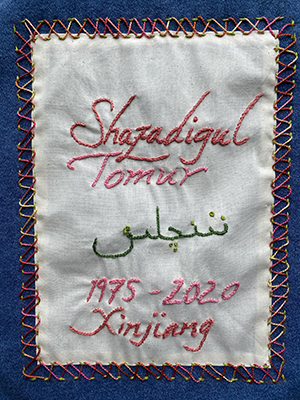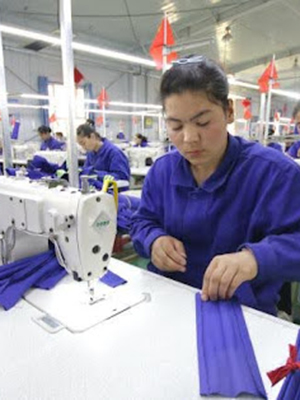Shazadigul Tomur
 Aamna Tirmazi ’27
Aamna Tirmazi ’27
China is the world’s leading producer of cotton and most of it is grown in Xinjiang, where the Chinese government has built a vast complex of detention facilities that have become the largest internment of a religious minority since the Second World War. Since 2017, China has been accused by human rights organizations of systematically detaining more than 1 million Uyghurs at these camps. Chinese officials have denied the accusations, stating their campaign is a program for “vocational training” to help Xinjiang residents “learn Chinese.” The Uyghurs, a majority Turkic ethnic group, are being forced to work in factories surrounded by barbed wire and not permitted to have access to the outside world, including families, the internet, lawyers, or religious services. One such worker was a 45 year old woman named Shazadigul Tomur. She died in 2020 while working in a forced labor facility after authorities had denied her medical treatment. She had been detained in 2018 and had been making cotton socks like those you can buy in Walmart and Target.

When the US Secretary of State confronted his Chinese counterpart in 2021 about the forced labor camps, Director Yang Jiechi reprimanded Antony Blinken for being a hypocrite. He made an allusion to the history of slavery in the US and suggested that with a record like that, the US had no right to lecture China. Since that war of words, the US has become the first country to declare the Chinese actions against the Uyghurs as genocide and the first to ban imports of cotton from Xinjiang. Enforcement of this law is, of course, complicated as China exports its cotton to factories all over the world. Retail executives at Ralph Lauren and Shein have contracted with Oritain, an isotopic testing company that can verify the origin of cotton in their supply chains. U.S. Customs has also used Oritain for cotton goods analysis and found that 27% of all textiles and shoes tested were still coming from Xinjiang. The human rights group Jewish World Watch has established the Uyghur Forced Labor Database, where you can check to see which brands are manufacturing with forced labor:
Sources
- 2021 Report on International Religious Freedom: China—Xinjiang
- Counter Uyghur Forced Labor
- How goods made with forced labor end up in your local American store
- How your favorite jeans might be fueling a human rights crisis | Vox.com
- Uyghur Forced Labor Database – Jewish World Watch
- Diaspora Uighurs Continue Online Activism Against Crackdown in Xinjiang
Exclusive: US Customs finds garments made with banned Chinese cotton | Reuters.